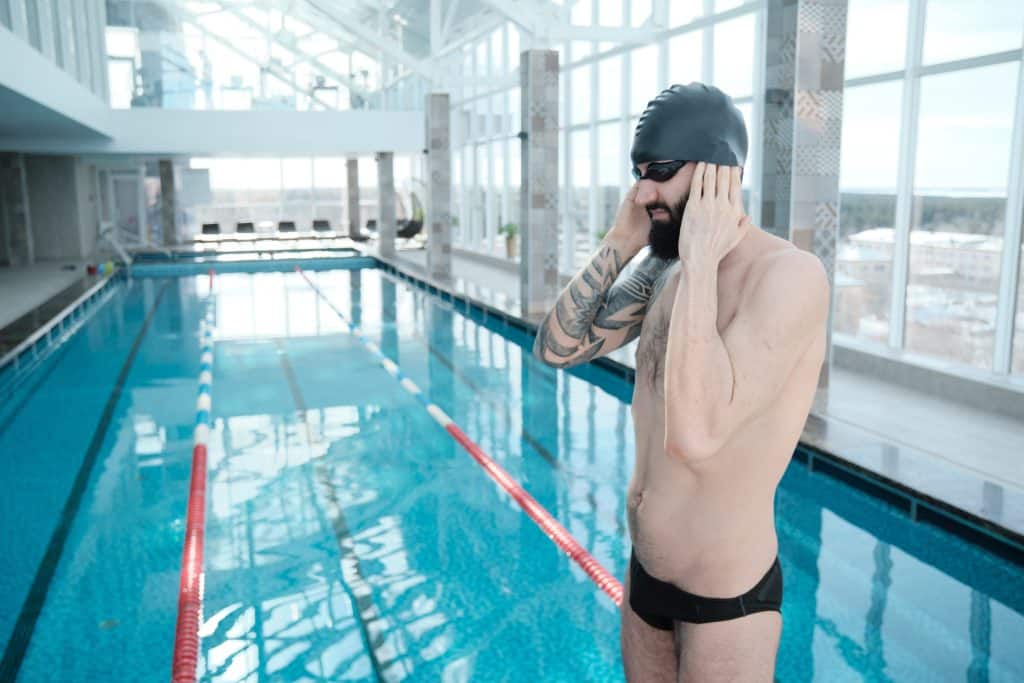Swimmer’s ear, also known as otitis externa, is an outer ear canal infection. It is a common problem during summer when people are more likely to swim in chlorinated water. Swimmer’s ear can be very painful and cause hearing loss if not treated properly. If you have been dealing with this condition or are just looking for ways to prevent it, this post is for you! You will learn about the causes of swimmer’s ear, prevention tips, and treatment options.
Contents
The Causes Of Swimmer’s Ear

Swimmer’s ear is a condition caused by water that remains in the ear after swimming. This can create a breeding ground for bacteria; if the ear is not dried properly, the bacteria can multiply and cause an infection. Swimmer’s ear is also more likely to occur if there is a cut or scratch on the skin inside the ear canal, as this provides an entry point for bacteria.
Furthermore, people with allergies or asthma are more susceptible to swimmer’s ear, as they may have an inflammation of the Eustachian tube, which can block drainage from the ear. Swimmer’s ear can be painful and uncomfortable, but it is usually not serious. However, if left untreated, it can lead to more severe infections.
How Swimmer’s Ear Is Diagnosed

If you suspect you have swimmer’s ear, it is crucial to see a doctor as soon as possible. The diagnosis is typically made based on the symptoms and a physical examination. In some cases, a doctor may take cultures to confirm the diagnosis. When swimmer’s ear is suspected, it is important to avoid putting anything in the affected ear, such as cotton swabs or drops, as this can push the infection deeper into the ear canal.
Treatment Options To Deal With Swimmer’s Ear
Treatment options are available for those already suffering from swimmer’s ear. While you may need to see a doctor for a complete diagnosis, there are specific methods they may use to treat the infection.
Antibiotic Ear Drops

One way to treat swimmer’s ear is with antibiotic ear drops. Antibiotic ear drops are available over the counter and by prescription. They work by killing the bacteria that cause the infection. In most cases, they are safe and effective. However, there are a few things to remember when using them.
First, make sure to follow the instructions on the label. Second, only use them for a week if directed by a healthcare provider. Finally, contact a healthcare provider if the infection does not improve or worsens.
Corticosteroid Ear Drops

While many over-the-counter treatments are available for swimmer’s ear, corticosteroid ear drops are often the most effective option. Corticosteroids help reduce inflammation and can be used with antibiotics to clear the infection. In addition, you can use them to treat any pain or itching associated with swimmer’s ear.
When using corticosteroid ear drops, it is crucial to follow the instructions on the package carefully. In addition, you should apply the drops to a clean, dry ear and not use them for more than seven days. If you experience any irritation or discomfort after using the drops, discontinue use and consult your doctor.
Non-Steroidal Anti-Inflammatory Drugs

Non-Steroidal Anti-Inflammatory Drugs, or NSAIDs, are a class of medications commonly used to treat pain and inflammation. They can be taken orally or applied topically and are available over the counter or by prescription. NSAIDs work by inhibiting the production of inflammatory compounds in the body. This can help to reduce pain and swelling. NSAIDs often treat conditions like arthritis, tendinitis, and menstrual cramps. However, they can also be effective in treating swimmer’s ear.
Applying NSAIDs topically in the form of a gel or cream can be helpful for pain and inflammation associated with swimmer’s ear. When using NSAIDs, follow the instructions on the package and talk to your healthcare provider if you have any questions or concerns.
Antifungal Medication

Depending on the cause of the infection, your healthcare provider may prescribe antifungal medication. While bacteria typically cause swimmer’s ear, it can also be due to a fungus. Antifungal medication can be taken orally or applied topically in drops or creams. These medications work by killing the fungus causing the infection.
However, it is important to note that swimmer’s ear caused by a fungus is rare, and you should only use antifungal medication under the direction of a healthcare provider.
Ear Wicks

If the infection is severe or does not improve with other treatments, your healthcare provider may recommend using ear wicks. Ear wicks are small, T-shaped pieces of gauze inserted into the ear canal. The purpose of an ear wick is to absorb excess moisture and help keep the ear canal dry.
You should change ear wicks every day or two, and you should only use them under the direction of a healthcare provider. Improper use of ear wicks can lead to further irritation or infection, so it is essential to follow the instructions provided closely.
Tips To Prevent Swimmer’s Ear

If you have suffered from swimmer’s ear or want to prevent it from happening, there are steps you can take. Here are a few things to keep in mind:
Dry Your Ears After Swimming
One of the best ways to prevent swimmer’s ear is to dry your ears after swimming. You can do this by tilting your head to the side and using a soft towel or cotton swab to remove any water from your ear canal. You can also use a blow dryer set on the lowest setting and held at least one foot away from your ear.
Avoid Putting Foreign Objects In Your Ears
Another important preventative measure is to avoid putting foreign objects in your ear, such as cotton swabs or fingers. This can introduce bacteria or irritate the skin of the ear canal, increasing the risk of swimmer’s ear. While it may be tempting to clean or scratch the inside of your ear, it is best to leave this job to a healthcare professional.
Consider Ear Plugs
Using ear plugs while swimming can also help to prevent swimmer’s ear. Ear plugs help to keep water out of the ear canal and are particularly useful for those who spend a lot of time in the water or suffer from frequent swimmer’s ear infections. Just make sure to clean and dry your earplugs after each use to prevent the growth of bacteria. When used repeatedly without proper cleaning, earplugs can increase the risk for swimmer’s ear.
Be Prepared To Deal With Swimmer’s Ear!
While swimmer’s ear can be painful and irritating, there are steps you can take to treat and prevent it. If you suspect you have swimmer’s ear, talk to your healthcare provider about the best treatment options. And remember, keeping your ears dry and avoiding foreign objects can go a long way in preventing swimmer’s ear. After all, prevention is always the best medicine, and the last thing you want is to be out of the water and stuck with an ear infection.


